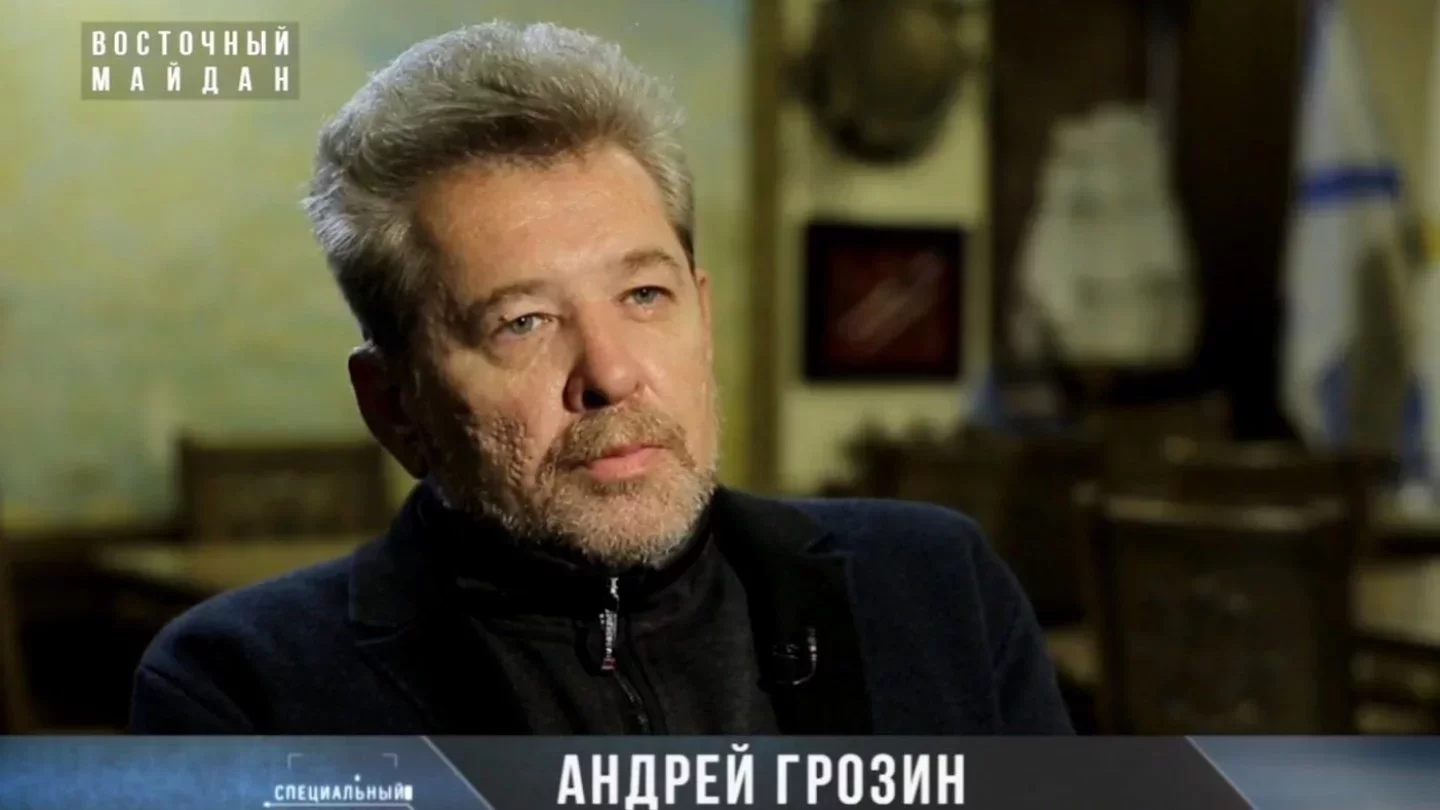Russian Historian Andrei Grozin Reported to Have Been Stopped from Entering Kazakhstan
 Photo: I-sng.ru
Photo: I-sng.ru
Russian media have reported that "famous scholar and historian" Andrei Grozin was not allowed into Kazakhstan. Orda.kz looked into the matter.
What Happened?
As RBK writes, candidate of historical sciences Andrei Grozin was scheduled to visit Astana and participate in several events. One focused on "taking stock of problems in Russian-Kazakh relations."
However, on April 27, Grozin was reportedly denied entry to Kazakhstan without any reason specified.
Some Russian media outlets claim the refusal may be linked to Grozin’s alleged inclusion on a list of individuals whose presence in the country is considered undesirable. This list includes foreigners who have made unfriendly statements about Kazakhstan, such as TV presenter Tina Kandelaki.
Some in Kazakhstan have raised questions about why the Russian historian could have been added to the persona non grata list.
Our countries have lists of people who are banned from entering the country, who have distinguished themselves by making unfriendly statements towards our more than friendly states. But why Grozin?
political scientist Daniyar Ashimbayev wrote on his Telegram channel.
Grozin's Background
Andrei Grozin is a senior research fellow at the Center for the Study of Central Asia, the Caucasus, and the Ural-Volga Region of the Institute of Oriental Studies of the Russian Academy of Sciences (RAS). He also heads the Kazakhstan and Central Asia Department at the private Institute of CIS Countries.
Grozin was born in Primorsky Krai but studied at KazNU and worked at Kazakhstan’s Ministry of Press and Mass Media in the early 1990s.
According to his official biography, Grozin was periodically recruited to work by other Kazakh departments, including the Ministry of Defense and the Ministry of Ecology. He left Kazakhstan long ago and has been living in Russia since 1996.
In 2009, he defended his PhD thesis, titled "Russian-Kazakh Military-Political Cooperation in the Post-Soviet Period and Prospects for Central Asian Security."
Grozin’s academic works have covered topics such as the "ethnosocial policy of the Central Asian states and Kazakhstan," the role of Kazakhstan’s armed forces in ensuring regional security, religious extremism in Central Asia, and Kazakhstan’s oil industry.
His numerous comments in Russian outlets such as Regnum, Russia Today, Sputnik, the Russian Defense Ministry’s Zvezda TV channel, and Tsargrad, which is blocked in Kazakhstan, may have drawn attention.
What Did Andrei Grozin Say About Kazakhstan?
Grozin’s texts often feature terms like "nationally concerned Kazakh comrades," "little unhinged Nazis," and "Ukrainization of Kazakhstan" — narratives common in hawkish Russian media.
Grozin is particularly critical of Ukraine, calling it "country 404" or "a territory between Russia and Poland," but Kazakhstan also draws his criticism. In particular, Grozin appears to express dissatisfaction with President Toqayev's foreign policy.
Nobody expected anything else from Kazakhstan with its... pardon me, multi-vector policy. Over the past two months, you will not find a single forecast from Kazakhstani analysts regarding Kazakhstan's possible accession to BRICS. Maneuvering between the West and the East, Kazakhstan is bending toward the West this time,
Grozin has said.
He also criticizes Toqayev’s domestic policies:
Toqayev has not developed a very good image. Under Toqayev, little Kazakh Nazis came to power in Kazakhstan, who have a soft spot for the 'Turkistan Legion' and other not very good comrades who love the Maidan,
Grozin has said.
In the same interview, the Russian expert criticized Kazakhstan for its reluctance to join BRICS:
Maybe it's not a bad thing that Kazakhstan, with its ever-wavering position, is in no hurry to join BRICS. It's not really needed there. Because such a country with such a leadership, with such an elite, can slow down the development of processes, delegitimize, organize various unnecessary discussions, and cause harm in small ways.
In his comments, the senior researcher also lamented that in Kazakhstan, "there is more and more Kazakh and less and less Russian," and compared the northern regions of Kazakhstan to Ukraine’s Donbas.
The fact that the Kazakh government is currently getting carried away by the Russophobic narrative is bad. But we must take into account that Kazakhstan is very vulnerable to external pressure from Russia, China, and the United States. All of these countries can turn Kazakhstan into Ukraine at the snap of a finger,
the Russian historian said in one of his interviews.
Original Author: Nikita Drobny
Latest news
- Tokayev Congratulates Saudi Leaders on Founding Day
- Undocumented Kazakhstanis in South Korea Can Leave Without Penalties Until Late February 2026
- Kalkaman Metro Station Construction Continues in Almaty
- Kazakh Peacekeepers on the Golan Heights Receive UN Medals
- Only Names Left: More Than 80 Villages Disappeared in Kazakhstan in a Year
- Environmental Safety to Be Added as Constitutional Principle
- Russian Fighter Jet Makes Emergency Landing in Atyrau
- Kazakhstan’s Banks See First Early-Year Profit Drop Since the Pandemic
- Cyclone to Bring Snow, Rain, and Blizzards to Kazakhstan
- Investments, Aviation and Healthcare: Tokayev Holds Series of Meetings With U.S. Company Chiefs in Washington
- Kazakhstan Ready to Send Military to Gaza — Results of the «Board of Peace»
- Ex-Prince Who Sold a Mansion to Kulibayev Arrested in Epstein Case
- Almaty Will Not Build New Sports Facilities for the 2029 Asian Games
- Earthquake Recorded in Kazakhstan in 2020 May Have Been China’s Nuclear Test
- Kazakhstan May Move Constitution Day to March 15
- Kazakhstan’s Cinema Market: Kazakhfilm Fined, Kinopark Under Antitrust Scrutiny
- Kazakhstan Extradites Tax Fraud Suspect from Kyrgyzstan
- New 5.3-km Hiking Trail to Big Almaty Lake Planned for 2026
- Kazakhstan Introduces New Rules for Parcels Ordered from Foreign Marketplaces
- FlyArystan Appoints Executive from European Airline as CEO

